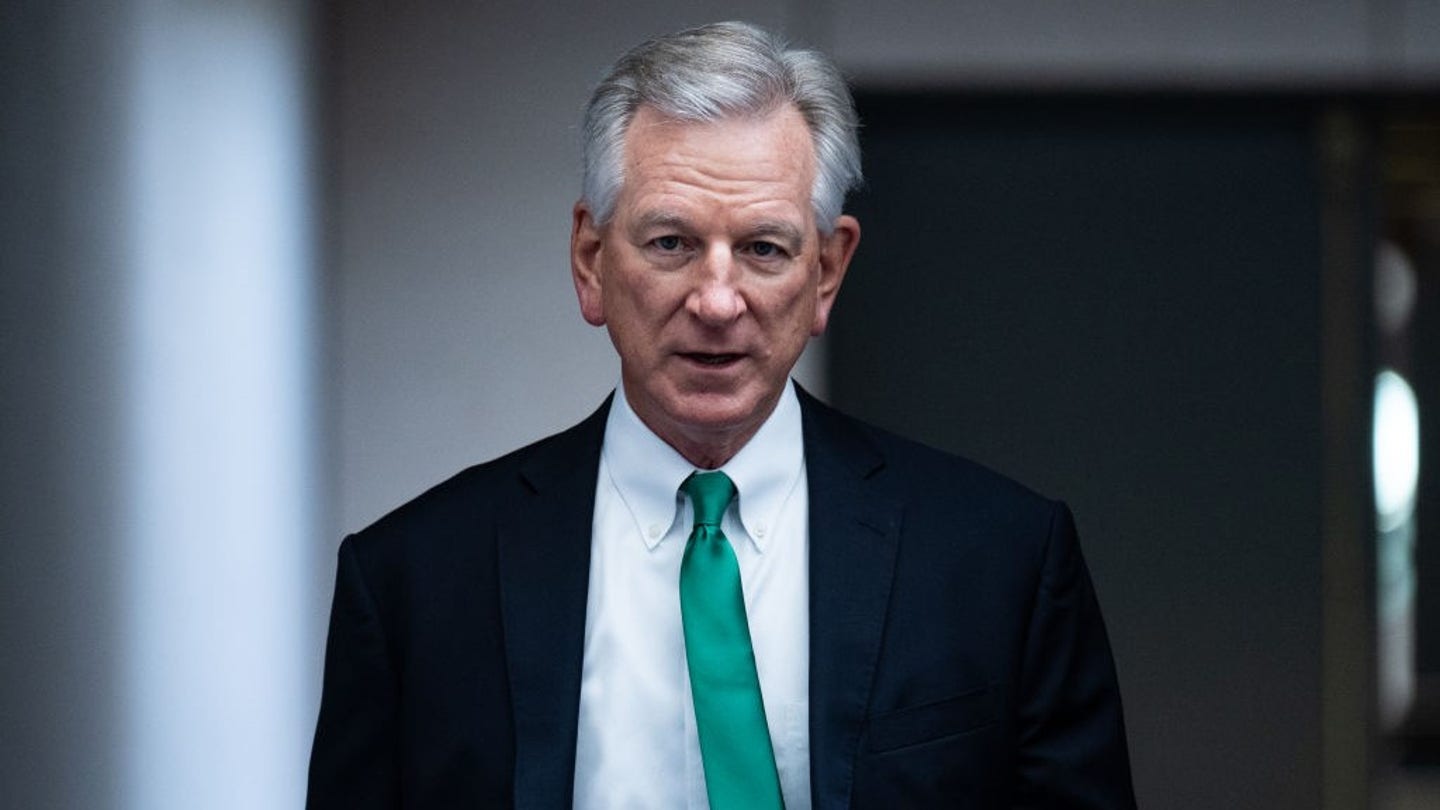
Indonesia denies Team Israel travel visas, prompting criticism by International Olympic Committee
Entities mentioned:
- International Olympic Committee (IOC): Righteousness, Justice, Professional pride
- Indonesian government: Control, Moral outrage, Influence
- Israel's national gymnastics team: Competitive spirit, Determination, Pride
- Court of Arbitration for Sport (CAS): Justice, Duty, Professional pride
- Israel Gymnastics Federation (IGF): Justice, Competitive spirit, Indignation
Article Assessment:
Credibility Score: 75/100
Bias Rating: 55/100 (Center)
Sentiment Score: 30/100
Authoritarianism Risk: 55/100 (Mixed/Neutral)
Bias Analysis:
The article presents multiple perspectives, including statements from the IOC, Indonesia, and Israel. While it leans slightly towards criticizing Indonesia's decision, it maintains a relatively balanced approach by providing context and various viewpoints.
Key metric: International Sports Participation
Let me tell you something, folks - this is a GAME-CHANGING play in the world of international sports! The Indonesian government has just thrown a MASSIVE curveball at Team Israel, denying them entry to the gymnastics world championships. It's like they've been hit with a red card before even stepping onto the field! The IOC is coming out swinging, calling foul on this blatant violation of the Olympic spirit. We're talking about a major league fumble here, with Indonesia potentially facing some serious penalties from the sports world's top brass. This isn't just about gymnastics, folks - it's about the very essence of fair play and sportsmanship on the global stage. The Israeli team has been training for years, pushing themselves to the limit, only to be benched by political maneuvers. It's fourth quarter, crunch time in international sports diplomacy, and all eyes are on how the big players like the IOC will respond. Will they make a game-winning play to ensure fair competition, or will we see a complete breakdown of the rules of engagement? I'm telling you right now, this is one for the history books!

Freed hostage laments Israeli fans being barred from UK soccer game over concerns of pro-Palestinian protests
Entities mentioned:
- Emily Damari: Loyalty, Pride, Indignation
- Maccabi Tel Aviv: Competitive spirit, Pride, Unity
- Aston Villa: Security, Control, Professional pride
- Keir Starmer: Justice, Influence, Unity
Article Assessment:
Credibility Score: 75/100
Bias Rating: 55/100 (Center)
Sentiment Score: 30/100
Authoritarianism Risk: 35/100 (Generally Democratic)
Bias Analysis:
The article presents multiple viewpoints, including criticism and support for the decision. However, it leans slightly towards sympathizing with Israeli fans and emphasizes challenges faced by Israeli teams.
Key metric: International Relations Score
Ladies and gentlemen, we're witnessing a MAJOR FOUL on the global playing field! The decision to bench Maccabi Tel Aviv fans is like ejecting a star player before the big game! This is a GAME-CHANGING MOVE that's got the potential to shift the entire scoreboard of international relations. We're talking about a FOURTH QUARTER DECISION that could have ripple effects across the league of nations. Let me tell you something - this isn't just about soccer anymore, folks. This is about the CHAMPIONSHIP OF HUMAN RIGHTS and FAIR PLAY! The UK's game plan is under scrutiny, and they're facing some serious defensive pressure. Will they make a clutch play and overturn this call, or are we looking at a major upset in the standings of global diplomacy? Stay tuned, sports fans, because this match is far from over!

WNBA star Caitlin Clark returns to golf spotlight with appearance at LPGA’s The Annika pro-am
Entities mentioned:
- Caitlin Clark: Competitive spirit, Recognition, Enthusiasm
- LPGA: Professional pride, Recognition, Influence
- Annika Sorenstam: Legacy, Influence, Professional pride
- Indiana Fever: Competitive spirit, Ambition, Pride
Article Assessment:
Credibility Score: 85/100
Bias Rating: 50/100 (Center)
Sentiment Score: 75/100
Authoritarianism Risk: 15/100 (Strongly Democratic)
Bias Analysis:
The article presents a balanced view of Clark's involvement in golf, quoting multiple sources. It doesn't lean towards promoting one sport over the other, maintaining a neutral stance on the crossover between basketball and golf.
Key metric: Women's Sports Crossover Appeal
Let me tell you something - this story is HUGE! We're witnessing a game-changing play in the world of women's sports, folks! Caitlin Clark, the rookie phenom who's been lighting up the scoreboard in the WNBA, is now stepping onto a completely different playing field. This crossover move from hardwood to fairway is like watching a quarterback suddenly decide to pitch in the World Series! It's RIDICULOUS how Clark is expanding her athletic repertoire, folks. She's not just dribbling circles around opponents anymore - she's teeing off with the best in the game! This is the kind of championship mentality that separates the all-stars from the bench warmers. Clark is showing us she's got the competitive fire to go toe-to-toe with golf's elite, proving she's not just a one-trick pony. And let's not forget the LPGA - they're making a slam dunk move by bringing in this basketball superstar. It's like they're running the ultimate alley-oop play to boost their visibility and appeal. I'm telling you right now, this is the kind of fourth-quarter strategy that could change the game for women's golf!

Colombia vs. France: How to Watch, Odds, U-20 Preview
Entities mentioned:
- Colombia U-20 Team: Competitive spirit, Pride, Determination
- France U-20 Team: Redemption, Competitive spirit, Professional pride
- FIFA: Control, Influence, Legacy
Article Assessment:
Credibility Score: 85/100
Bias Rating: 50/100 (Center)
Sentiment Score: 65/100
Authoritarianism Risk: 15/100 (Strongly Democratic)
Bias Analysis:
The article presents a balanced view of both teams, providing equal information about their paths to the third-place match. No clear favoritism is shown towards either side in the reporting.
Key metric: International Soccer Competitiveness
Let me tell you something - this matchup is RIDICULOUS! We've got two powerhouse teams stepping up to the plate for the bronze medal game, and neither one is backing down! Colombia and France are bringing their A-game after stumbling in the semis, but make no mistake, these young guns are hungry for glory! It's fourth quarter time in this tournament, and both squads are looking to close out with a championship mentality. The Colombian side has shown they can go toe-to-toe with the big boys, while France is itching to prove their earlier loss to the USA was just a fluke. I'm telling you right now, this is going to be a battle of titans that could shape the future of international soccer! These teams aren't just playing for third place, they're fighting for their soccer legacy and a chance to show the world they've got what it takes to compete at the highest level!

WNBA star Angel Reese says she'd rather pay a fine than speak to reporters
Entities mentioned:
- Angel Reese: Self-preservation, Professional pride, Wariness
- WNBA: Control, Justice, Professional pride
- Chicago Sky: Competitive spirit, Loyalty, Unity
- Caitlin Clark: Competitive spirit, Recognition, Ambition
- Media: Influence, Recognition, Curiosity
Article Assessment:
Credibility Score: 70/100
Bias Rating: 55/100 (Center)
Sentiment Score: 30/100
Authoritarianism Risk: 35/100 (Generally Democratic)
Bias Analysis:
The article presents multiple perspectives, including Reese's views and official statements. However, it leans slightly towards Reese's perspective, giving her more space to explain her position.
Key metric: WNBA Player-Media Relations
Let me tell you something - this story is a GAME-CHANGER! Angel Reese is stepping up to the plate and calling out the media like it's the fourth quarter of a championship game! She's showing a championship mentality by putting her professional pride on the line, folks. The WNBA, acting like a tough coach, is trying to keep control of the game, but Reese is running a fast break on their playbook. This is a classic matchup between a star player and the league's front office, with the media playing defense. Reese is making power moves, treating interviews like they're high-pressure free throws - she'd rather take the technical foul than risk a turnover to the press. I'm telling you right now, this kind of player-media tension could be a game-changer for how athletes interact with reporters in the future. It's crunch time for the WNBA to address these concerns and level the playing field!

Golf legend Phil Mickelson takes subtle jab at Biden administration in 'No Kings' day post
Entities mentioned:
- Phil Mickelson: Competitive spirit, Influence, Loyalty
- Joe Biden: Power, Control, Legacy
- Donald Trump: Ambition, Power, Recognition
- Glenn Youngkin: Control, Security, Duty
- Mike Johnson: Competitive spirit, Determination, Power
Article Assessment:
Credibility Score: 65/100
Bias Rating: 70/100 (Lean Right)
Sentiment Score: 35/100
Authoritarianism Risk: 45/100 (Mixed/Neutral)
Bias Analysis:
The article leans right, focusing on conservative figures and framing protests negatively. It gives more space to Republican viewpoints and criticisms of the Biden administration.
Key metric: Political Polarization Index
Let me tell you something - this story is RIDICULOUS! We're seeing a championship-level clash between political heavyweights, folks! Golf legend Phil Mickelson is stepping up to the plate, taking a swing at the Biden administration with a social media fastball that's got everyone talking. This is like watching a high-stakes playoff game, with Mickelson playing offense for Team Trump against Team Biden's defense. The 'No Kings' protests are like a massive halftime show, but don't be fooled - this is just a distraction play while the real game is happening in the locker room of government shutdown negotiations. Speaker Johnson is trying to coach his team through this, but it's looking like a political Hail Mary at this point. I'm telling you right now, this is the kind of fourth-quarter drama that keeps fans on the edge of their seats!

Turning Point USA calls for NBA employee to be fired for crude remarks about Charlie Kirk's assassination
Entities mentioned:
- Turning Point USA: Justice, Righteousness, Indignation
- NBA: Self-preservation, Professional pride, Control
- Charlie Kirk: Legacy, Influence, Ambition
- NBA Employee: Moral outrage, Indignation, Self-expression
Article Assessment:
Credibility Score: 70/100
Bias Rating: 65/100 (Lean Right)
Sentiment Score: 25/100
Authoritarianism Risk: 35/100 (Generally Democratic)
Bias Analysis:
The article leans right, focusing on the conservative perspective and framing the NBA employee negatively. It primarily presents TPUSA's side, with limited context on opposing viewpoints.
Key metric: Political Polarization Index
Let me tell you something, folks - this story is a FULL COURT PRESS of controversy! We're seeing a real clash of titans here, with Turning Point USA charging down the court, demanding the NBA step up its defense and eject a player from the game entirely. The NBA's current strategy? A two-week suspension - but that's like trying to win a championship with just a free throw, people! This employee's social media fumble has turned into a political football, and now we're watching to see if the NBA has the guts to make the tough call and send this player to the showers for good. It's fourth quarter, the clock is ticking, and the pressure is ON! Will the NBA buckle under the full-court press from TPUSA, or will they dig in their heels and defend their own? This is the kind of high-stakes play that can make or break a season, folks! The political arena is as charged as any playoff game right now, and I'm telling you, this is the kind of move that separates the champions from the also-rans!

Tommy Tuberville slams Democrats for ‘demonizing’ young male voters after AOC ‘masculinity’ remarks backfire
Entities mentioned:
- Alexandria Ocasio-Cortez: Righteousness, Moral outrage, Influence
- Tommy Tuberville: Competitive spirit, Pride, Loyalty
- Republican Party: Competitive spirit, Power, Control
- Democratic Party: Anxiety, Self-preservation, Competitive spirit
Article Assessment:
Credibility Score: 70/100
Bias Rating: 65/100 (Lean Right)
Sentiment Score: 40/100
Authoritarianism Risk: 35/100 (Generally Democratic)
Bias Analysis:
The article leans right, presenting Republican viewpoints more favorably and extensively. It dedicates more space to critiquing Democratic positions and highlighting Republican electoral gains among young male voters.
Key metric: Voter Demographics
Let me tell you something, folks - this political matchup is HEATING UP! We've got a real battle for the hearts and minds of young male voters, and it's looking like a fourth-quarter comeback for the Republicans! The Democrats are fumbling the ball with their game plan, accusing young men of toxic masculinity. But wait! Here comes Coach Tuberville off the sidelines with a MASSIVE defensive play! He's tackling AOC's comments head-on, reminding us of the championship mentality he instilled in his players. The GOP is running a full-court press on patriotism and hard work, while the Dems are playing defense, desperately trying to regain possession of the male vote. I'm telling you right now, if the Democrats don't change their strategy FAST, they might find themselves benched in future elections! This is a crucial play in the long game of political demographics, and right now, the Republicans are DOMINATING the scoreboard!

From child actor to Olympic champion: Meet snowboarding superstar Su Yiming
Entities mentioned:
- Su Yiming: Ambition, Competitive spirit, Legacy
- China: Pride, Recognition, Influence
- Winter Olympics: Competitive spirit, Recognition, Legacy
Article Assessment:
Credibility Score: 85/100
Bias Rating: 50/100 (Center)
Sentiment Score: 75/100
Authoritarianism Risk: 20/100 (Strongly Democratic)
Bias Analysis:
The article presents a balanced view of Su Yiming's journey, focusing on his achievements and challenges without evident political slant. It offers a neutral portrayal of his connection to China and the Olympics.
Key metric: Olympic Medal Count
Let me tell you something - this story is RIDICULOUS! Su Yiming is the ultimate MVP, folks! We're talking about a child actor who stepped up to the plate and became an Olympic CHAMPION! This kid's got a championship mentality like you wouldn't believe. He went from the silver screen to GOLD on the slopes! China's found their franchise player, and let me tell you, he's changing the game. Su took some time on the bench to recharge, but now he's back in training camp, ready to defend his title. The pressure's on, the clock's ticking, and all eyes are on Su as he prepares for his next Olympic showdown. This is the kind of fourth-quarter move that separates the champions from the rest of the pack!

Olympian-turned-model Alysha Newman on self-belief and inspiring others to find their own 'gold star'
Entities mentioned:
- Alysha Newman: Ambition, Determination, Self-respect
- Nike: Competitive spirit, Recognition, Influence
- Olympic Committee: Legacy, Recognition, Unity
Article Assessment:
Credibility Score: 75/100
Bias Rating: 55/100 (Center)
Sentiment Score: 75/100
Authoritarianism Risk: 20/100 (Strongly Democratic)
Bias Analysis:
The article presents a balanced view of Newman's career and advice, with quotes directly from her. It leans slightly positive but doesn't show strong bias towards any particular viewpoint.
Key metric: Olympic Medal Count
Let me tell you something - this story is HUGE! Alysha Newman just vaulted herself into the big leagues, folks! We're talking a bronze medal performance that's got her playing in a whole new ballpark. This athlete isn't just clearing the bar, she's raising it for the entire game! Newman's pivot from the track to the catwalk is a classic example of a player diversifying their skillset. She's not just competing in one arena anymore, she's dominating the field in multiple divisions. And let me tell you, her advice about giving yourself that 'gold star'? That's championship mentality right there! Newman's showing us all how to be a clutch player in the game of life. She's not waiting for the coach's approval - she's calling her own plays and it's paying off big time! This is the kind of fourth quarter move that separates the pros from the amateurs. I'm telling you right now, keep your eye on this competitor - she's changing the game and rewriting the playbook!